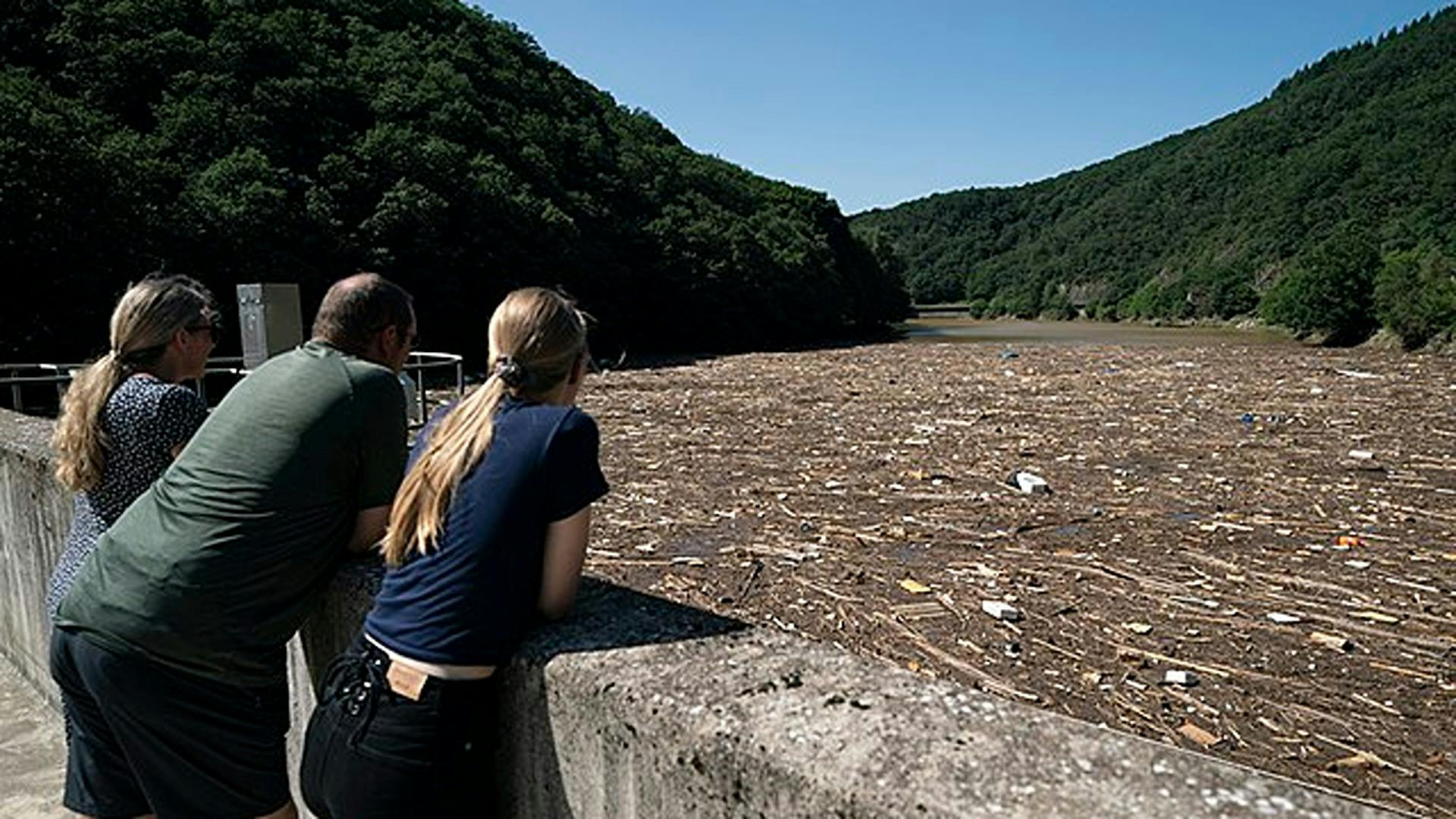

Antimo PerrettaChief Executive Officer Europe and Latin America (2021-2023)
July 11, 2022
The 2021 Floods in Europe: One Year Later
As the one-year marker of the European floodings of last summer approaches, my team and I have been reflecting on the enormous toll and scale of the catastrophe. How did we respond in face of these devastating events, what has been accomplished so far, and what can we learn from disasters?
4 minutes
Last year’s events have been historic for many of us. In all of my 40 years in the insurance industry, I experienced the natural catastrophes of July 2021 as a lesson in resilience and solidarity for all of Europe. Despite advance predictions of the severity of the storms and the potential for flash floods, many communities, tragically, were caught off guard. Today, governments, communities, and emergency response agencies are working to change evacuation messaging and improve community planning to ensure better preparedness and reduce destruction in the future.
Last summer was also a lesson in the real impacts of climate change. Given rising global temperatures, experts, including in the Intergovernmental Panel on Climate Change’s recently published Sixth Assessment Report, predict drastic increases in the frequency of catastrophic flooding events in Europe. As the atmosphere warms due to climate change, it can hold more water, leading to the potential for higher rainfall during storms. In addition, the jet stream may change or slow down, resulting in storms with longer durations: a deadly combination of more rainfall over a longer period of time.
The floods that impacted Belgium, Germany, and Luxembourg last year were unprecedented. In Germany, nearly 200 lives were lost and thousands of AXA customers were personally affected. In Belgium, more than 40 people lost their lives, and 26,000 homes were destroyed. In Luxembourg, numerous AXA customers suffered losses from hours of torrential rain and rising rivers, resulting in the largest insurance losses in the history of the small country. Across the whole of Europe, total insurance losses from the flooding are estimated at more than $12 billion. This natural catastrophe was the single costliest event globally in 2021.
Despite the enormity of the tragedies, I look back in gratitude for the speed and tremendous engagement of our teams in helping their communities and AXA customers. We immediately mobilized and reinforced our claims teams to speed up proactive communication and customer response. In Germany, we set up a 10€ million relief fund for customers without coverage, while our entities in Belgium and Luxembourg facilitated cash advances within a few days for customers in need. Our teams also participated directly in the recovery efforts. For example, more than 200 colleagues volunteered to clear debris from riverbeds in Belgium. In Germany, AXA Germany provided practical support to communities sourcing scarce equipment such as drying machines from abroad. The charity organization AXA Hearts in Action Germany was able to collect and distribute nearly 900,000€ in donations to support schools, kindergartens, sports clubs, and other social institutions in flooded areas.
Across these countries, crisis teams immediately took action to accelerate coverage checks, cash settlements, onsite inspections, communal recovery measures, and effective wreck disposals through intense collaboration with insurance associations, competitors, and government institutions. During these days, across AXA, we visibly lived up to our value of protecting what matters most.

Consequences of the flooding in Vianden, Luxembourg (Source: Anthony Dehez/European Commission)
A year later, there is still much work to be done: some restaurants are still not able to open, some houses are still under reconstruction, communities continue to plan for river reinforcements and implement corrections to urban planning. Life is evidently not back to normal in the hardest-hit areas of Germany. Our teams are working every day to make progress, and our relationships with our customers remain strong. The majority of claims have been settled, although some work is still in progress due to the complexity and scale of the destruction, as well as current shortages in construction material and skilled labor. However, almost all customers have received either a cash advance or a first payment.
There are key learnings from last year’s flooding that will help us better respond to our customers in the future, particularly around crisis management, external communication as an insurer, and most of all, the adaptability and speed of our claims operations. Yet our role as a partner goes beyond settling claims and disaster recovery. We give frequent updates to tied agents and brokers on coverage terms and property insurance, and direct massive communication campaigns to customers where natural catastrophe coverage is not mandatory.
Household insurance policies now include recommended preventative measures against floods and rain. Our AXA entities lobby at the association level for an enhanced industry approach towards climate change and have increased collaboration with communities to do research and perform geographic mapping of areas at risk.
Amidst all these activities, one strategic question remains: how can we scale up our efforts to combat climate change and prevent similar catastrophes from having such a dramatic impact as we saw last year?
Over the years, we have reinforced our efforts to fight climate change. At AXA Climate, a part of our newly launched Digital Commercial Platform, we aim to advise corporations and institutions on how to improve their sustainability, as well as develop innovative solutions to help our customers better mitigate climate-change-induced risks using geospatial, scientific, and satellite-based data. We believe data and AI will play a crucial role in predicting and preventing disasters like flash floods, droughts, and wildfires in the years to come. We are committed to investing in those technologies today to reinforce prevention in future.
We believe data and AI will play a crucial role in predicting and preventing disasters like flash floods, droughts, and wildfires in the years to come. We are committed to investing in those technologies today to reinforce prevention in future.
Part of our profession is to act as a stronghold for our customers in times of unexpected losses and unforeseen damages. Our planet is poised to undergo more of these moments of truth, as natural disasters increase in frequency and severity. Reflecting on the shared engagement and solidarity we accomplished across Europe last year, I am hopeful that we can now, more than ever, create a more sustainable future together.



